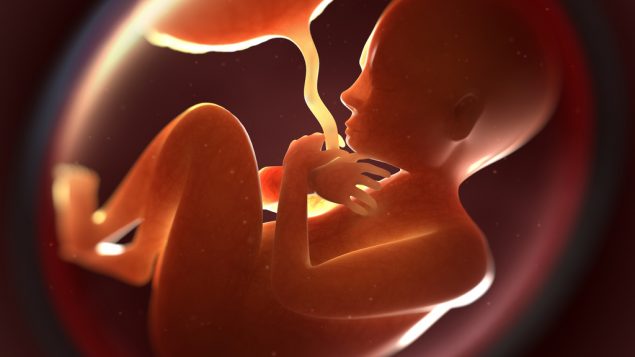Research in recent years has uncovered the vital importance of a person’s gut bacteria for things such as digestion and overall health. But there has been some controversy as to when bacteria begin to colonize a human. New research has found it happens during and after a baby’s birth and not before. The study was led by scientists at McMaster University in Hamilton, Ontario in collaboration with colleagues from Charité – Universitätsmedizin Berlin in Germany.
The cientists collected stool samples from 20 babies delivered by Cesarean section. This excluded the transmission of bacteria that occurs naturally during a vaginal birth. “The key takeaway from our study is we are not colonized before birth,” said Katherine Kennedy, first author of the study and a PhD student. “Rather, our relationship with our gut bacteria emerges after birth and during infancy.”

Research has shown that we would not be able to digest our food or stay healthy without the millions of bacteria that colonize out guts. (iStock)
Kennedy said the results suggest that a person’s relationship with their own gut bacteria is most important in early life, during critical stages of immunological and physiological development.
“The fact that colonization of infants’ guts occurs during and after their births, means that not only is it vulnerable to early environmental influences, but could also offers a window of potential intervention,” said Deborah Sloboda, professor of biochemistry and biomedical sciences at McMaster. “While many of the exact mechanisms surrounding gut bacteria and their role in our early development is unclear, discovering when and how we are colonized is a key first step.”
The study was published in the journal Nature Microbiology.







For reasons beyond our control, and for an undetermined period of time, our comment section is now closed. However, our social networks remain open to your contributions.